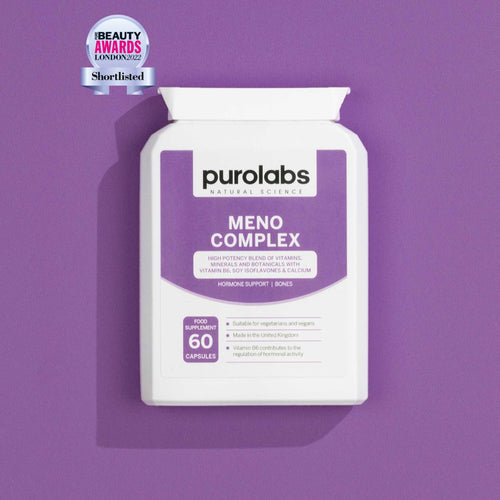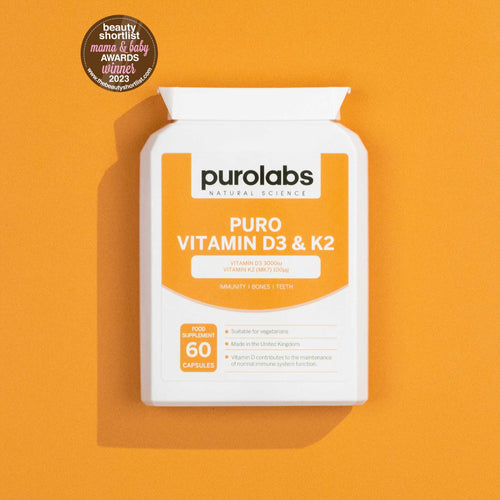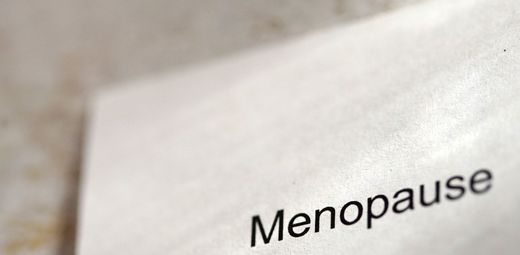We are beginning to see workplaces recognise and support it. Mainstream talk shows are starting to discuss it. Public figures are sharing their own journeys with it and although we have some way to go, the topic is beginning to gain the traction it deserves.
Once a little taboo or perhaps embarrassing or awkward to talk about, menopause is now a topic that is rightly gaining public attention, awareness, and increasing support that those going through that journey may need.
But what exactly is menopause?
Menopause is an entirely natural and inevitable stage in a woman’s life when reproductive years have ended. A significant shift in hormone production occurs bringing the common symptoms of menopause that we may have heard about.
There is, however, no set rule for menopause. Symptom severity can differ from woman to woman, from life-altering, to mildly inconvenient and all the stages in between.
Menopause usually occurs between 45-55 years (although this can vary) and is a several-year process which can last up to 15 years. Menopause can typically be described in three stages; perimenopause, menopause and postmenopause.
For any stage of menopause, if you are experiencing symptoms that are affecting your day-to-day, then consider taking Meno Complex, which contains a blend of nutrients and botanicals which are designed to support healthy hormonal balance.

Menopause Complex
For more information about each stage of menopause and how to protect your post-menopause body, read on…
Perimenopause
Perimenopause is the period when the body starts to change, hormone levels begin to drop and period frequency can become dysregulated. The time leading up to menopause can be several years long (up to 15 years for some) and can be a daunting, confusing, and highly emotional time for many women.
Progesterone and oestrogen like to engage in a frantic dance, with dramatic fluctuations in these hormones throughout this period. Hormone levels can rapidly change from one month to the next, and with it come to a variety of rather unpleasant symptoms. 62% of women reported that the symptoms experienced directly impact their quality of life1.
Hot flushes are one of the most reported symptoms, with 80% of perimenopausal women highlighting it as a common complaint2. They can occur during the day or in the form of night sweats. Women commonly report that a hot flush is more like a hot soak, with the flushes so intense that they are left drenched, which understandably affects aspects of daily life such as work commitments and sleep quality.
Other common symptoms experienced are3,4:
- Irregular periods
- Insomnia
- Low libido
- Low mood
- Brain fog
- Fatigue
- Vaginal dryness
- Muscle aches/joint pains
- Weight gain
- Palpitations
Menopause
Menopause is characteristically ‘labelled’ when menstruation hasn’t occurred for a 12-month period.
Many of the above symptoms do carry on into menopause whilst hormone levels are still fluctuating, however, during this period we do see more of a steady drop in oestrogen as the reproductive organ’s primary function changes.
Although anxiety and depression are reported during perimenopause, a sheer drop in oestrogen during menopause plus the symptoms experienced can dramatically impact mental well-being, adding a further layer of complexity and confusion.
Anxiety can present in different guises, from unrelenting thoughts and worries to physical manifestations such as dizziness, shortness of breath, chest pain and intense sweating. It is your ‘fight or flight’ aka your sympathetic nervous system being overstimulated and over-activated, bringing physical sensations of panic and fret5.
The anxiety and depression experienced can severely affect the quality of life. Women report that it impacts their personal relationships, their work, productivity, confidence, self-esteem and how they cope with the daily stressors of life.
It is a time of natural change, however, negative thoughts focused on body image and ‘ageing’ tend to be common, along with increased fatigue, and confusion about what is happening, and add low libido and vitality into the mix.
If you are experiencing anxiety as a result of menopause, do reach out to a qualified health practitioner for support and information on how to manage symptoms. Simply ‘pushing’ through can increase anxiety and its accompanying symptoms. There are many routes to take depending on your preferences and suitability.
Post-Menopause
Navigating your health post-menopause is key. Hormonal changes bring potential health changes, making it vital to be prepared for any potential new health risks. It is important to “be ready” for this life stage to help adjust to the next phase of your life.
Osteoporosis is a health condition that is commonly seen in post-menopausal women. Oestrogen is a vital hormone required to build bone, however after menopause women have naturally much lower levels of oestrogen. Less oestrogen leads to bone loss and weakens bone mineral density which does increase the risk of an osteoporosis diagnosis6.
Consider adding a vitamin D supplement to your daily routine to help strengthen bones and help protect against osteoporosis7.

Vitamin D3 & K2
Vitamin D protects bones by:
- Helps the body to absorb phosphorous and calcium from the food we eat
- The precursor to our steroid hormones like oestrogen, progesterone and testosterone
- Blocks the parathyroid gland from releasing parathyroid hormone, which breaks down bone
During menopause and post-menopause, oestrogen production is now the responsibility of our adrenals, as the ovaries stop producing hormones8.
This change means that supporting our adrenals during and after menopause is more crucial than ever. Stress drains the adrenals and impairs their function, therefore consider including daily stress reduction practices:
- Include a regular bedtime routine
- Implement mindful practices such as meditation or deep breathing
- Connect with loved ones
- Take time some to prioritise yourself
- Don’t skip meals as this can place strain on the adrenals
- Consider limiting caffeine intake
Increased cardiovascular risk is also important to note as oestrogen is cardioprotective. Oestrogen helps to manage cholesterol levels and helps to reduce fatty plaque build up inside the artery walls9.
Ensure that you are increasing intake of the below oestrogenic foods in your diet to help support oestrogen levels10:
- Soybeans
- Tempeh
- Tofu
- Cruciferous vegetables – Cabbage, cauliflower, kale, cauliflower
- Legumes
Menopause Awareness
Menopause is a life stage that does (or will) directly impact half of the world’s population and needs more public focus.
A large study reported that 30% of its female participants of reproductive age are dreading menopause with a lack of education and awareness a contributing factor. They noted that they lacked personal education but also felt disappointed at the lack of information provided by their GP11.
As mentioned, the topic is gaining traction, however, a systemic approach to menopause awareness for women and their partners is key to helping women navigate this life period.
There are discussions to provide education on menopause in secondary schools throughout the UK, which would be a promising move forward. It will help to remove any taboos, provide clarity, and support healthy family discussions around the topic.
If you are experiencing unmanageable symptoms as part of menopause, you don’t have to go through it alone. Reach out to a qualified health professional to help navigate and support you through these natural life changes.

 Beauty
Beauty
 Bone Health
Bone Health
 Brain Health
Brain Health
 Energy
Energy
 Eye Health
Eye Health
 Gut Health
Gut Health
 Hair
Hair
 Hormonal Health
Hormonal Health
 Heart Health
Heart Health
 Immunity
Immunity
 Joints
Joints
 Menopause
Menopause
 Pregnancy
Pregnancy
 Kids
Kids
 Sleep
Sleep
 Stress & Mood
Stress & Mood




















